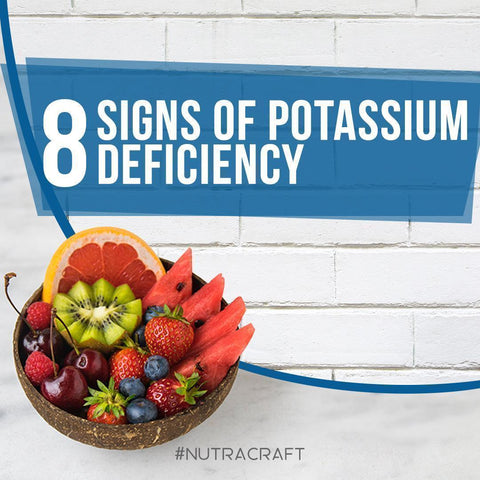
Magnesium deficiency has reached epidemic proportions in America and in most of the world. It is one of the critical nutrients that we often overlook despite our bodies needing it. Some have called it “the next vitamin D,” in reference to the absence of both nutrients from our bodies.
Magnesium is very critical to cellular health because it resides inside cells where it plays a crucial role in making enzymes work. Without this enzymatic activity, your cells wouldn’t carry out their duties to keep you healthy.
The crucial point that you need to understand is that enzymes control many functions in your body, and enzymes need magnesium to work effectively.
Important Point
Magnesium is necessary for all human cells to facilitate over 325 enzyme reactions. Because this element is mandatory for metabolic functioning, its deficiency is related to the development of nearly every disease state.
Metabolism refers to:
- Ability of cells to be energized
- Ability of body to build new cells or extracellular tissue
- Ability of cells to detoxify themselves
- Ability of cells to repair themselves
Exclusive Bonus! Download the FREE report ‘5 Top Supplement for Optimum Health’ by clicking here.
Magnesium Deficiency May Lead to Disease
Magnesium deficiency can be tied to nearly every disease. The following list introduces just a fraction of these diseases. Lack of magnesium is implicated in diseases that relate to:
- the cardiovascular system
- bones
- the brain
- regulating blood sugar
- muscle and nerve function
Magnesium deficiency is deeply implicated in many diseases. For instance, as it relates to cardiovascular health, magnesium is instrumental in keeping the heart beating, relaxing blood vessels, lowering blood pressure, and preventing the calcification and hardening of the arteries.
Magnesium Deficiency: An Epidemic
It is estimated that over 21 million deaths each year are heavily influenced by magnesium deficiency! Amazingly, that’s more people killed by magnesium deficiency than AIDS and war combined
1. http://www.lifeextension.com/magazine/2005/9/awsi/page-01
Considering how important this mineral is to staying alive, it is scary to think that magnesium deficiency is a worldwide epidemic. According to a large USDA survey of Americans, only 25% of people get a sufficient amount of magnesium from their diets, and that’s according to minimum acceptable amounts of magnesium. Many scientists believe that optimal magnesium intake is higher than the government’s recommendations.
Signs That You May Be Magnesium Deficient
1. You eat too much processed food.

Processed foods like refined grains, soda, or candy, that are mere remnants of natural whole foods, have much lower levels of magnesium than whole foods2. Eat real whole foods.
2. You don’t eat enough greens, nuts, seeds, or whole grains.
These natural whole plant foods are especially high in magnesium, and humans are meant to thrive on these types of foods!
3. Abnormal Heart Rhythms
If your heart starts beating quickly, in the absence of stress or exercise, you might be deficient. Magnesium is needed for the proper functioning of the heart muscle (it is a muscle after all)2.
4. Restless Leg Syndrome
If you’re constantly jiggling your legs and have trouble keeping them still, your antsy muscles are probably craving magnesium. Magnesium supplementation has improved restless leg symptoms, and some researchers think that magnesium deficiency is tied to muscle malfunctions in legs4.
5. Insomnia
Magnesium is needed to feel calm, and relaxation is certainly needed for good sleep. Magnesium relaxes muscles and is involved in GABA transmission5. GABA is a calming neurotransmitter. Magnesium supplementation has been shown to improve sleep and lessen insomnia5.
6. Anxiety
Animal studies have shown that magnesium deficiency causes a hyperactive stress response, elevated stress hormones, and even “hyper-emotionality”6. So if you want to be calm and not emotionally overreact to events in your life, soak up that magnesium.
7. Diabetes (weight gain, or insulin resistance)

Researchers say that magnesium plays a “key role in regulating insulin action” and glucose metabolism7. Additionally, magnesium deficiency has been linked to type II diabetes, and magnesium supplementation has shown benefits in fighting diabetes and insulin resistance7. And if magnesium can improve insulin efficiency, it should help you keep lean. Lower insulin = less weight gain (because insulin is an energy-storing hormone).
8. Migraines
Researchers believe that ALL migraine sufferers should be treated with magnesium8. Deficiency is heavily implicated in migraine development, and magnesium’s effects on neurotransmitter and blood vessel function help fight migraines.
9. Asthma
Because of magnesium’s bronchodilating and anti-inflammatory effects, it is useful in the treatment of asthma, which involves the inflammation of airtubes9. And magnesium deficiency is implicated in excessive inflammation, which not only impairs health but causes damage and accelerated aging throughout your body10.
10. Fatigue

Magnesium is needed for the production of ATP - the energy currency that your cells use1. And magnesium deficiency is correlated by scientific measurements, with energy deficits and mitochondrial dysfunction11. Mitochondria are the energy-producing compartments in all of your cells. Without magnesium, they don’t work right!
Get More Magnesium!
Unfortunately, many soils in which these foods grow are deficient in magnesium, so it's hard to tell for sure if the food you’re eating has as much magnesium as it naturally should.
If you’ve read this far, there’s no doubt that you want to be magnesium-sufficient. To get enough, cover the basics and eat plenty of whole plant foods. These foods are high in magnesium - especially green vegetables because chlorophyll, the green coloring, contains magnesium.
Humans would also naturally get some magnesium from the water we drink, but much of our water today is (understandably) filtered. This filtering removes toxins but also healthy minerals like magnesium.
These concerns are why many experts recommend supplementing with magnesium. So to be sure you’re getting enough of this mineral, you might want to take some powder or pills.
Know What The Best Supplements Are For Your Age and Gender?
Most people don’t realize that there are supplements that are ideal for every age range and even genders -- and sometimes taking a multivitamin may not be enough.
Master Herbalist, Dr. Donna Schwontkowski, reveals exactly what to do to help you look and feel your best at any age - with the top supplements needed for optimum health.










